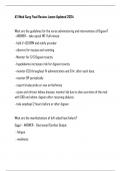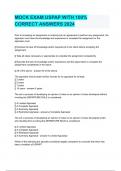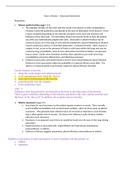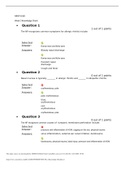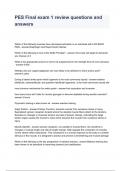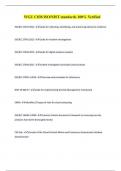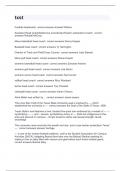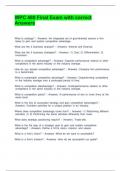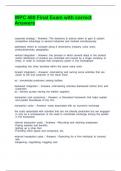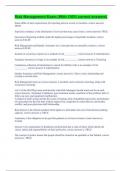Tentamen (uitwerkingen)
ATI Med Surg Final Review Latest Updated 2024
- Vak
- Instelling
ATI Med Surg Final Review Latest Updated 2024 What are the guidelines for the nurse administering and interventions of Digoxin? - ANSWER-- take apical HR 1 full minute - hold if <60 BPM and notify provider - observe for nausea and vomiting - Monitor for S/S Digoxin toxicity - hypokalemia ...
[Meer zien]
